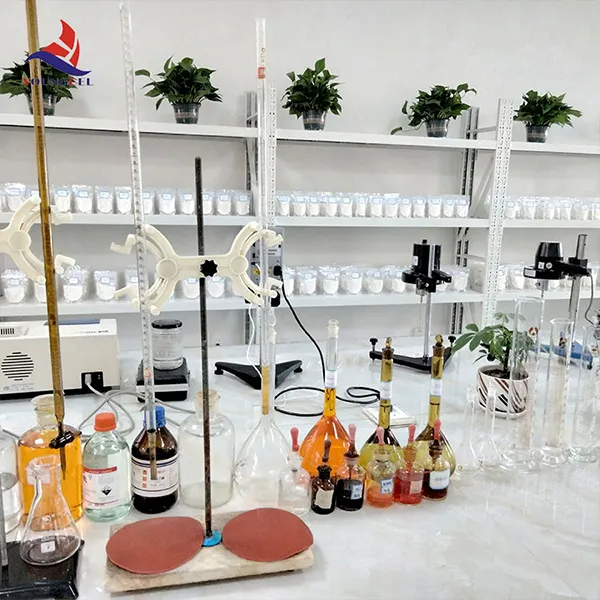The Importance of Cellulose in Industrial Applications
Cellulose, a complex carbohydrate composed of glucose units, is the primary structural component of plants. It is the most abundant organic polymer on Earth and plays a crucial role in various industrial applications due to its unique properties and versatility. As industries increasingly seek sustainable and biodegradable materials, cellulose has emerged as a key player in sectors ranging from textiles and paper to food, pharmaceuticals, and biofuels.
Sources of Cellulose
Cellulose is derived from various natural sources, primarily wood, cotton, hemp, and agricultural byproducts such as straw and sugarcane bagasse. The extraction process typically involves breaking down the lignin and hemicellulose that surround the cellulose fibers, resulting in a pure cellulose product. This sustainable sourcing is increasingly relevant in a world looking to minimize reliance on fossil fuels and non-renewable resources.
Applications in the Textile Industry
One of the most significant applications of cellulose is in the textile industry, where it is used to create various fabrics. Viscose, lyocell, and modal are all types of rayon derived from cellulose and are prized for their softness and breathability. These fabrics are biodegradable, making them an environmentally friendly choice compared to synthetic fibers like polyester, which can take hundreds of years to decompose. Furthermore, the textile industry is focusing on utilizing eco-friendly dyeing processes to enhance the sustainability of cellulose-based fabrics.
The Paper Industry
Cellulose has long been a fundamental component in the paper industry. The majority of paper products you encounter today are made from cellulose fibers derived from wood pulp. Innovations in this sector continue to improve not only the quality of paper but also the processes involved in pulping and recycling. For example, the recycling of paper required less energy and water compared to producing new paper from virgin fibers, further emphasizing cellulose's role in promoting sustainable practices in industrial settings.
Food and Pharmaceuticals
cellulose for industrial

In the food sector, cellulose is utilized as a food additive or thickening agent, enhancing the texture and stability of processed foods. It is often found in products such as ice cream, salad dressings, and various baked goods due to its ability to bind water and maintain moisture. Additionally, cellulose can contribute to a feeling of fullness in the digestive system, serving as a dietary fiber that supports gut health.
In pharmaceuticals, cellulose is used as an excipient, which helps to bind tablets or serve as a coating. It can also be found in capsule formulations, where it provides a vegetarian alternative to traditional gelatin capsules. The biocompatibility and versatility of cellulose are pivotal for developing drug delivery systems.
Biofuels and Sustainability
With the global emphasis on sustainability, cellulose has gained attention as a potential source of biofuels. Lignocellulosic biomass, which is rich in cellulose, can be converted into bioethanol through biochemical processes. This conversion offers a renewable alternative to fossil fuels, aiding in reducing greenhouse gas emissions. Research continues in optimizing cellulose conversion technologies to make biofuel production more efficient and economically viable.
Environmental Considerations
One of the most critical aspects of cellulose is its biodegradability. Unlike petroleum-based products, cellulose can decompose naturally, minimizing environmental impact. As companies and consumers alike push for greener alternatives, cellulose stands out as a responsibly sourced material that aligns with sustainable ethos.
Conclusion
The broad range of applications for cellulose underscores its significance in modern industrial practices. Its role in textiles, paper production, food, pharmaceuticals, and biofuels demonstrates its versatility and potential as a sustainable resource. As industries develop and innovate, cellulose will likely remain at the forefront, providing eco-friendly solutions to meet market demands while promoting environmental stewardship. The continued exploration of cellulose's capabilities will undoubtedly foster advancements that harmonize industrial growth with the need for sustainability in our ever-evolving world.
-
Rdp Powder: Key Considerations for Wholesalers in the Building Materials IndustryNewsJul.08,2025
-
Key Considerations for Wholesalers: Navigating the World of Hpmc - Based ProductsNewsJul.08,2025
-
Hpmc Detergent: Key Considerations for WholesalersNewsJul.08,2025
-
Key Considerations for Wholesalers: China Hpmc For Tile Adhesive, Coating Additives, Concrete Additives, and MoreNewsJul.08,2025
-
Crucial Considerations for Wholesalers: Navigating the World of Construction MaterialsNewsJul.08,2025
-
Key Considerations for Wholesalers Sourcing Additive For Cement, Additive For Concrete, Additive For Putty from Additive Manufacturer Shijiazhuang Gaocheng District Yongfeng Cellulose Co., Ltd.NewsJul.08,2025




